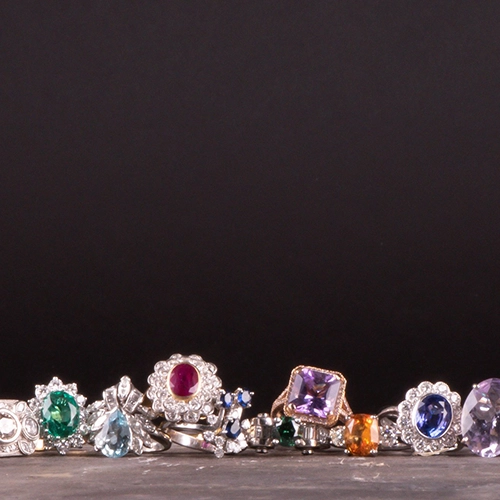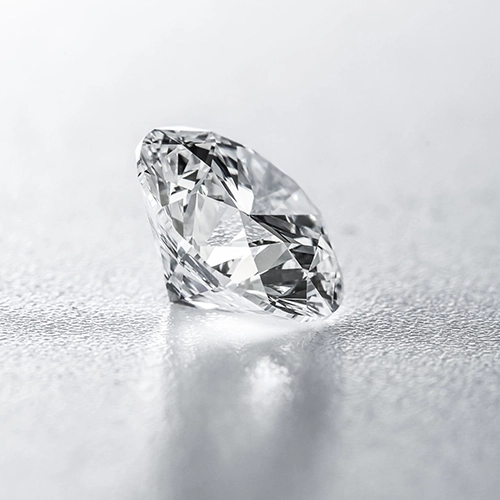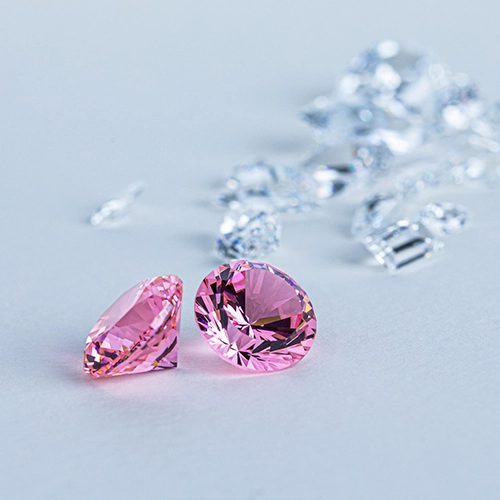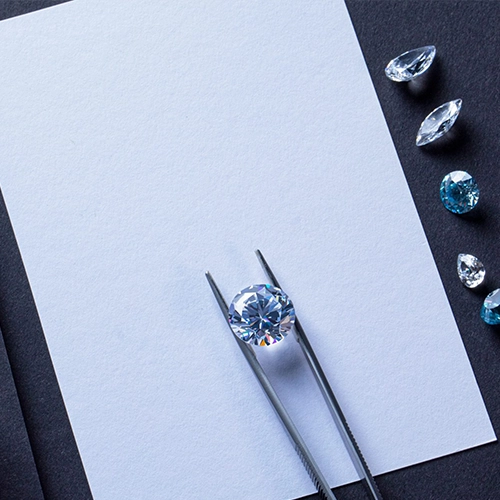13 June 2023
Diamond certification: what it is and why it matters
5 minutes
When it comes to precious gemstones, diamonds take the top spot. While rare diamonds are among the most expensive jewels in the world, every diamond is unique with its own set of characteristics that determine its value and authenticity. This is where diamond certification comes in.
|
|
What is diamond certification?Diamond certification is an impartial report into the authenticity and specifications of a diamond from a specialist gemmologist or diamond laboratory. Following inspection on a number of points, a diamond is issued with a certificate that usually details:
Sometimes called a diamond dossier, diamond grading report or diamond quality document, the certification provides proof and reassurance to the buyer that the diamond is as described, making it easier to determine its value at a future date. |
Why do diamonds need certification?
Not every diamond needs a certificate. Having a diamond graded is an expensive and time-consuming process, so as a rule, only diamonds that are higher than 0.25 carats in weight are certified. Smaller, inexpensive diamonds are unlikely to need certification – because a certificate won’t improve a particular stone’s quality, it simply details what that quality is.
However, once you’re looking to buy a diamond of 0.25ct and above, certification gives you proof of a diamond’s authenticity and quality, as well as serving as proof of ownership. Not only does this make it easier to value the diamond in the current market, but it makes it simpler to sell in future too, if you ever wish to. You may also need a certificate for your jewellery insurance policy as a condition of cover.
That’s why certification should always come from an independent lab – so you know the assessment of the diamond’s characteristics (most importantly the 4Cs) is impartial and trustworthy. You should always keep your certificate in a safe place, so you can use it to prove identity and ownership if you ever lose the diamond, or in case you come to sell.
What’s the significance of the 4Cs?
The 4Cs are among the main characteristics that matter when determining the quality of an individual diamond. Every diamond certificate should include them, and they should always be assessed before purchase, whether a jewel is certified or not.
|
|
What details aren’t included?
An independent diamond certificate doesn’t tell you what a diamond is currently worth in terms of recommended retail price – this comes on a Valuation Certificate, which you may need for your jewellery insurance policy.
Where your diamond is certified may also have a bearing on the details included. For example, whether and where a diamond was mined or grown isn’t always included as part of diamond certification, so you may need a separate Certificate of Origin.
Some jewellers offer Certificates of Authenticity for all their jewels, which is separate to an independent diamond certification. This tends to include your name, recommended retail price and unique certificate number.
Who certifies diamonds in the UK?
All certification has to be carried out by a gemmological specialist in laboratory conditions.
However, there’s no international standard for diamond grading so different labs have varying techniques when it comes to certifying diamonds. As a result, it’s important to ensure the lab you use is thorough and independent, whatever its size, for the most reliable results.
|
|
For diamond certification in the UK, you can also use:
- The British Gemmological Institute (BGI) – based in London since 1931
- Gem Testing Laboratory of Great Britain (GEM A) – the only laboratory in the UK registered to issue CIBJO Diamond Grading Reports
- Precious Stone Laboratory (PSL) – another reliable UK-based diamond certificate provider.
What other gemstones can be certified?Gemstones come in all shapes and sizes – and values. Like diamonds, if you’re buying more expensive gemstones, for example sapphires, rubies or emeralds, then it’s advisable to have a gemstone certificate to prove its authenticity, quality and to detail any treatments that have been applied to the stone. The same laboratories that carry out diamond certifications also provide gemstone certification. |
 |
What insurance do I need for certified diamonds?
The insurance you need to protect your jewellery will depend on the value of your diamonds and gemstones. Most contents insurance policies will cover valuables up to a certain amount, but this varies policy by policy and may be less than your jewels are worth.
It’s important to check the cover limits on your policy, alongside the terms and conditions, so you know when and how your diamonds are covered. For example, some polices may require you to keep your jewels in a locked safe when not being worn, or that you can only wear a certain value of jewels at any one time, or you might need to have pieces re-valued regularly.
That’s why it’s always wise to talk to a broker. At Howden, we take jewellery insurance very seriously – offering comprehensive protection that takes into account the finer details of your collection alongside a panel of highly-recommended valuation companies for up-to-date jewellery valuations.
Whether you need cover for a single item or collection, a pair or set, or cover outside your home, we will guide you through your options to make sure your precious diamonds have the protection they need.
To speak to Howden about insuring your jewellery call 020 8256 4901 or email privateclients@howdeninsurance.co.uk.



